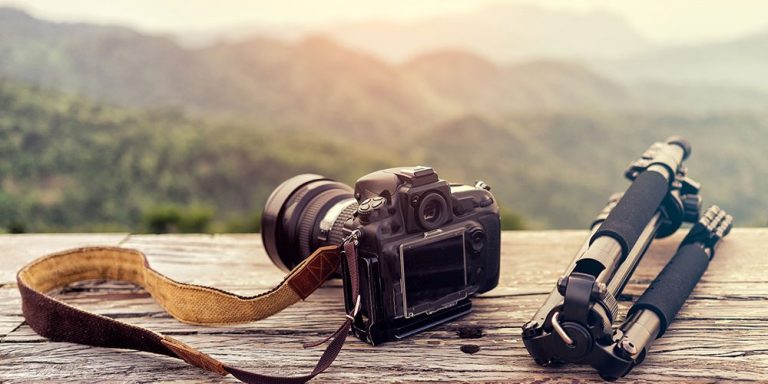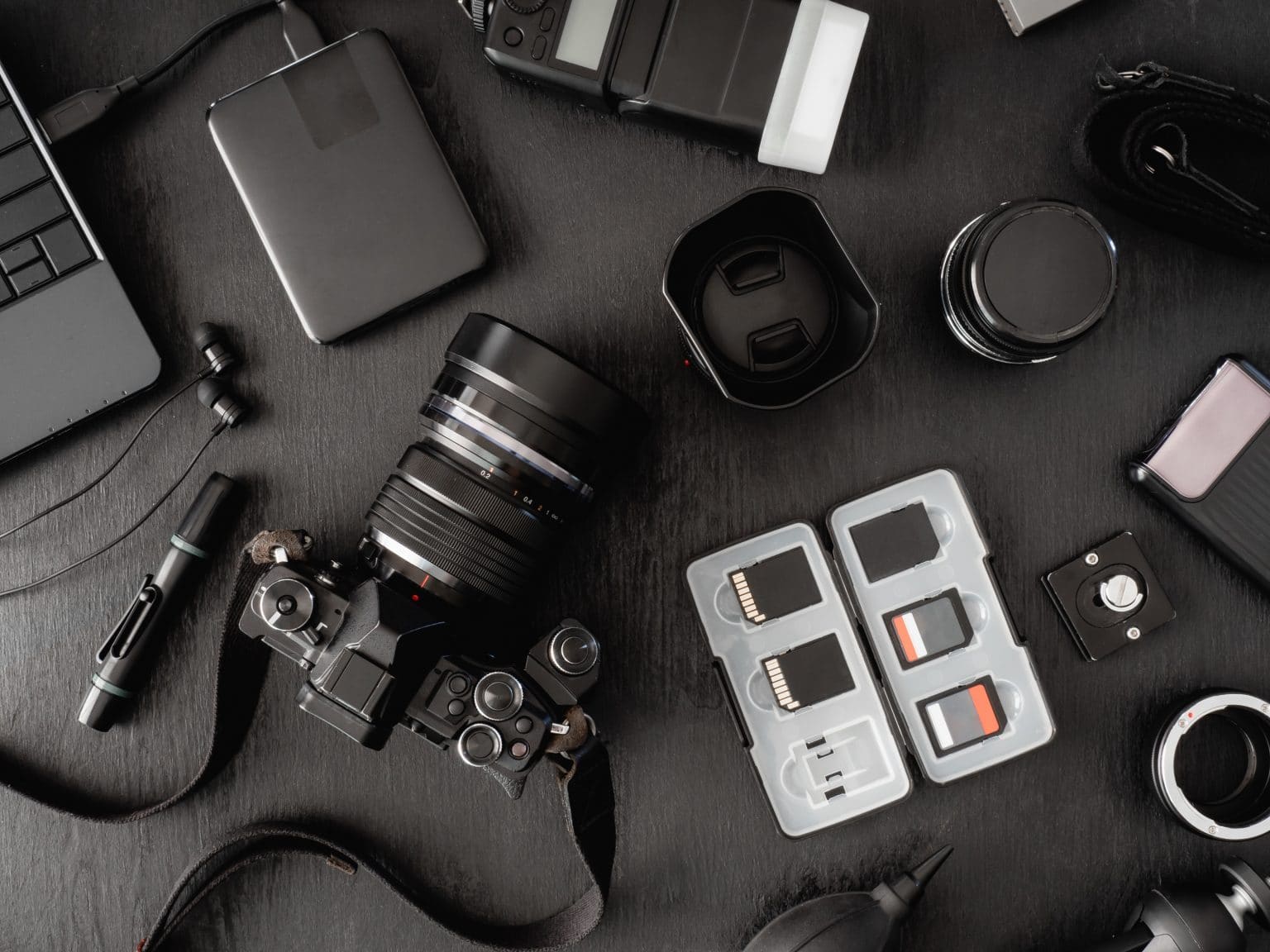It can be frustrating to replace or have your gear repaired — especially if you have to halt on client photo sessions.
Now what?
Full Frame Insurance’s camera equipment coverage alleviates the stress of replacing or repairing your gear out of pocket. Here’s a brief rundown on how to file a claim if your camera or other business equipment is damaged or stolen.
Overview of the Damaged or Stolen Camera Claim Filing Process
Full Frame Insurance does its best to make the claim-filing process smooth and hassle-free for photographers and videographers who put their trust in us. The biggest piece of advice for expediting a damaged or stolen camera claim is your upfront work in providing the information and documentation needed to process your claim.
Kyle Jude, FFI’s underwriter and insurance expert, explained the importance of having all the right documentation.
“Having the right information is key to making sure your claim is handled as quickly as possible. Having a copy of your policy handy, whether it is a paper copy or PDF you store on your phone, can save you a lot of time and effort when it comes to filing a claim. If you ever have items that are stolen it is important to file a police report so that all pertinent information to the loss is stored and easily referenced at a later time.”
File a Police Report (Stolen Camera Equipment Claims)
If your camera or equipment is stolen or the incident involves some other type of violation of the law (such as someone intentionally damaging your equipment), first report it to the police.
Make sure you get a signed written copy of the report, including details about the policy department and reporting officer. A claims adjuster may need to reach out and verify your claim, as this is the only way to confirm the details of a stolen camera incident.
If your claim doesn’t require a police report, there’s other paperwork you’ll need to make it easy to file your claim.

Gather Necessary Paperwork
Having the right paperwork in hand is going to make it easier to file a stolen or damaged camera equipment claim. Here’s what you might need:
- Your policy information (policy number, cert number, effective date, and so on)
- Date and approximate time of incident
- Where the incident occurred (e.g., venue or site address, or other location identifier)
- Who was involved (name and contact info)
- Detailed description of the incident
- Exact or estimated dollar amount of stolen or damaged property (a great reason to hold onto camera and equipment purchase receipts!)
- Any other documentation you might have, such as witnesses/contact info, photos, videos, etc.
If applicable (for claims of theft or intentional damage):
- Name and contact info for the police department where you filed a report
- Name of reporting officer
- A copy of the signed police report
Next, file your claim online through your account dashboard.
File a Claim Online or Contact Us to Start the Claim Process
A member of our team will usually contact you within 2 business days of you submitting a claim:
- Log in to your online user account
- Locate the “Manage Policies” section
- Click “File a Claim”
- Fill out the form and submit
For more details, check out our detailed explainer on the claims process with FFI.
We know how serious having your camera and other business equipment stolen or damaged can be. It can literally freeze your ability to work. So, it’s important to complete each of these three steps as quickly as you can (filing a police report, gathering your info, and submitting your claim).
The sooner we get your claim and documentation, the faster we can get the claims process moving. If you need help filing a claim with Full Frame Insurance, please contact us today.
What is a Camera Equipment Insurance Claim?
A claim is when you officially request remittance from your insurance company due to the theft of or damage to gear that is covered by your camera equipment insurance policy.
Camera equipment claims are similar to other types of claims that could be covered by photographers insurance and videographer insurance. Although the information you need to provide is different, the overall process remains the same.
What Does FFI’s Camera Equipment Insurance Cover?
Camera equipment insurance is designed to respond to claims that your camera and other business equipment has been damaged or stolen. It can cover your cameras, lenses, lighting equipment, and other photography gear, as well as business equipment like your laptop or computer.
Here are some common scenarios that could lead to filing a claim for a damaged or stolen camera:
- You shooting both the photos and videos for a wedding. You set up your video camera in a stationary spot behind the officiant, leaving you free to roam around and get pictures of the happy couple. The wedding officiant trips over their robe, falls backward, and topples your video camera and tripod onto the hard marble floor, rendering them out of commission.
- You’re in the middle of reviewing proofs with your client and they spill their drink — ruining the laptop you use to edit photos.
- Imagine taking beautiful wedding photos of the newlyweds by a giant waterfall. You stand on a rock to get a better angle, and your camera strap snaps. You drop your camera and shatter your lens.
- You arrive at a park to shoot some video footage and a thief looking for something to pawn runs up to you, grabs your camera bag out of your hand, and flees the scene.
Some scenarios that won’t be covered include:
- Cameras, equipment, or other gear you’ve rented, borrowed, or doesn’t belong to you (the policyholder)
- Cameras or other gear stolen from an unattended vehicle, even if it’s locked
- A claim of stolen business property that you didn’t report to the police (it’s your responsibility to file a police report if a theft occurs)
- Mysterious disappearances
Camera Equipment Insurance Coverage Options

Our Annual+ plan (the best value) bundles the first tier of camera equipment insurance into your photographers or videographers liability insurance plan. But you also have options to increase your coverage on cameras, lenses, gimbals, and other gear for protection today and as your business grows.
Coverage Tiers* and Costs | Starts at $129/yr or $12/month
- $1,000 per item/ $5,000 aggregate ~$4.58/month
- $2,000 per item/ $20,000 aggregate ~$10.83/month
- $10,000 per item/ $60,000 aggregate ~$$22.91/month
- $15,000 per item/ $75,000 aggregate ~$29.08/month
*$250 deductible on camera equipment claims
Did you know FFI’s parent company, Veracity Insurance Solutions, made CNBC’s World’s Top Fintech Companies List? Find out what this award means for FFI customers.
FAQs on Damaged or Stolen Camera Equipment Claims
Is My Business Camera Covered by Homeowners Insurance?
Probably not! Many home owner and renter insurance policies exclude coverage for business equipment, even a home-based business. To confirm whether or not your business camera and gear are protected, check your policy or reach out to your renters or homeowners insurance company.
What Kind of Insurance Do I Need to Protect My Camera?
Purchasing camera equipment insurance is the best way to protect your camera and other business gear from theft or damage.
Do I Need a Police Report If My Gear Gets Stolen?
Yes! Filing a police report before making a claim is crucial if your gear is stolen. Your claim of theft will be denied if you don’t have a police report on file.
How Long Will It Take for My Claim to Get Processed?
The entire process can take from 3 to 5+ weeks, depending on if you submitted all the required information. It takes roughly 1 to 2 business days for a confirmation that your claim was submitted. It can take 5-10 business days to hear back from the claims adjuster who will be handling your claim.



